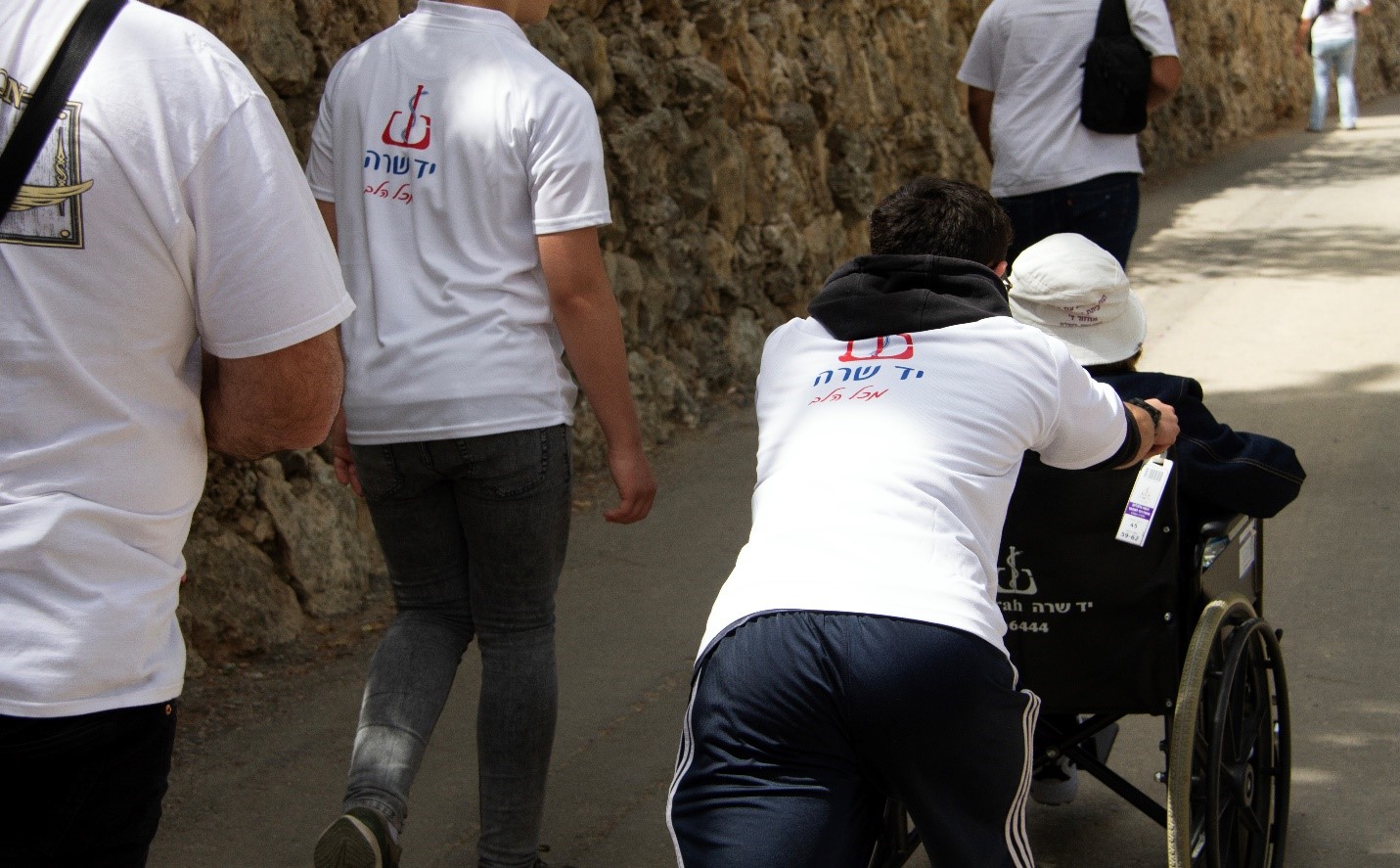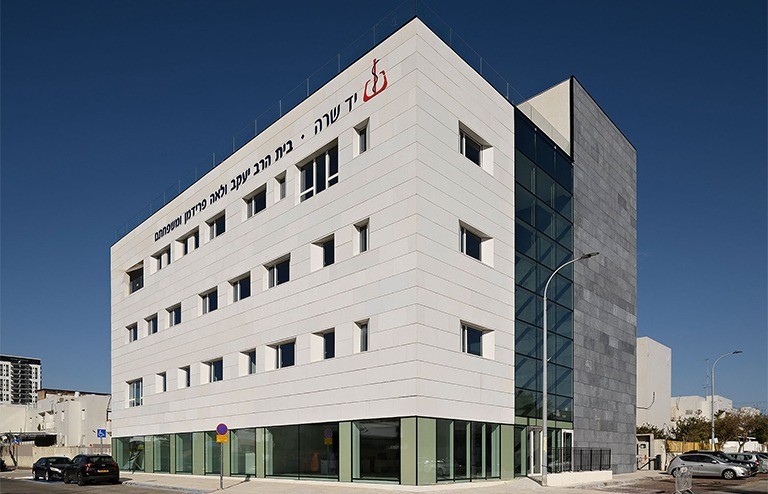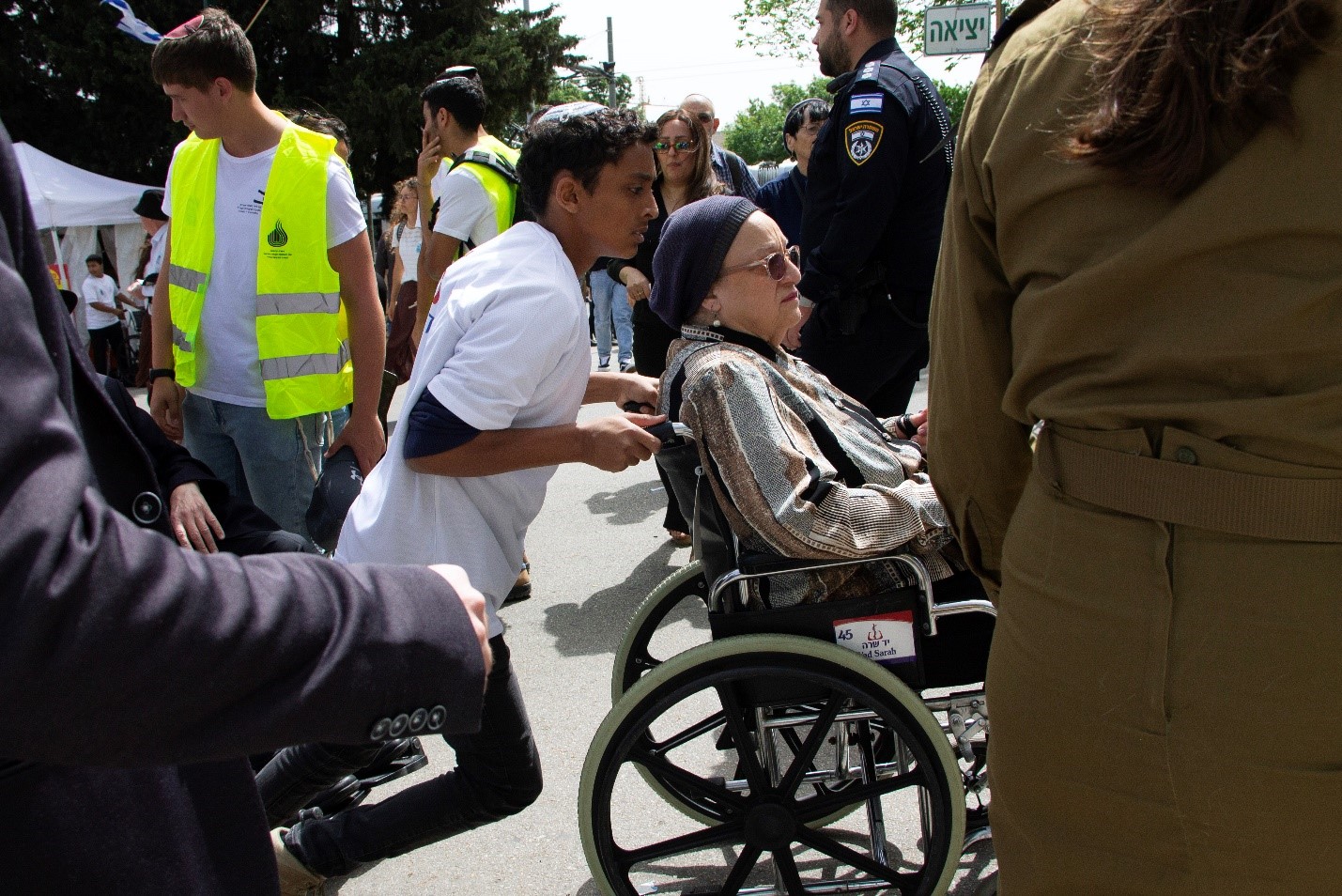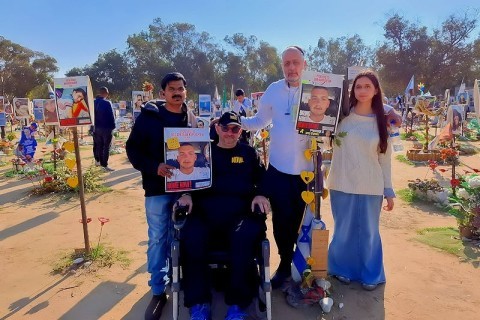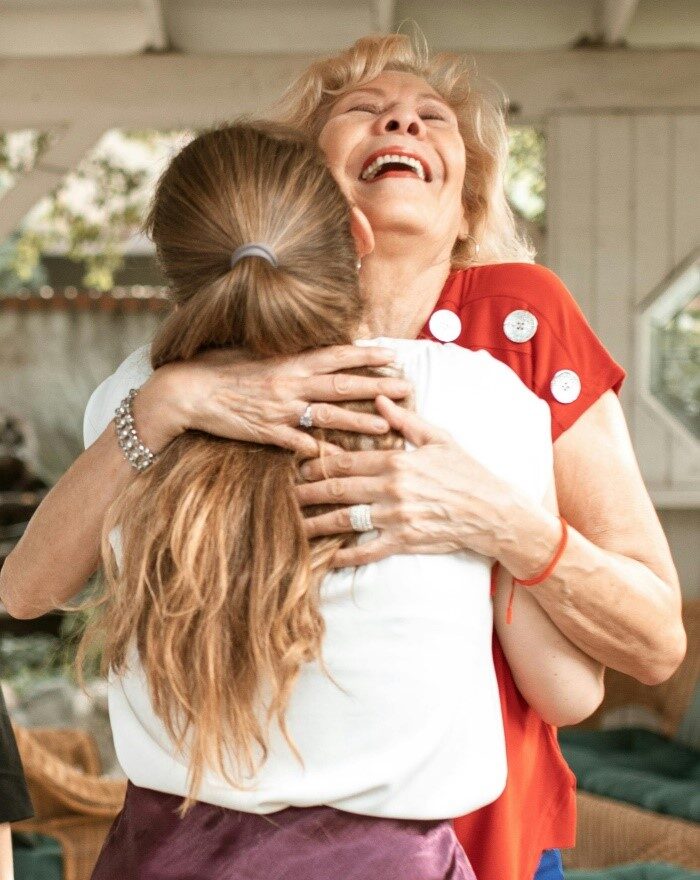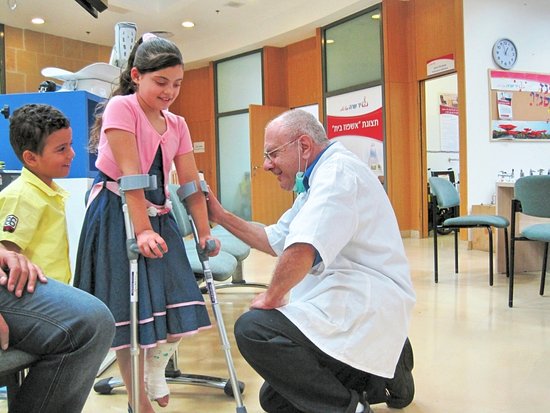Philip Bendheim revised by Arlene Weisbart
June 11th, 2025
In summary, even though Good Deeds Day is only a 24-hour event, NGOs may use this one-day energy boost to create long-lasting effects. Here’s how.
Good Deeds Day, which is this Sunday, April 6, provides a potent reminder of what binds us all together: the desire to make a difference in a world that is frequently characterized by stress and adversity. Israeli philanthropist Shari Arison started Good Deeds Day in 2007, and since then, it has expanded from a volunteer project in Israel to a worldwide movement that is currently observed in 115 nations. On Good Deeds Day, millions of people commit their time and energy to service and kindness every year.

We at Yad Sarah, the top volunteer-run organization in Israel offering free or inexpensive health and home care support services, have experienced firsthand how Good Deeds Day can do more than just spreading kindness. After years of involvement, we’ve discovered that being strategic is more important for success on Good Deeds Day than simply showing up. Jewish NGOs can convert this one-day energy boost into long-lasting influence by approaching the day intentionally. At Yad Sarah, we strive to make every day feel like Good Deeds Day because of this.
To help Jewish NGOs maximize Good Deeds Day, we’ve learnt the following five important lessons:
1.) Connect activities to your mission directly.
An organization’s primary goal should be reflected in Good Deeds Day rather than feeling like a stand-alone endeavor. Initiatives that are an extension of a nonprofit’s goal are the most successful.
Our goal at Yad Sarah is to guarantee that every Israeli has access to the medical assistance they require. Our volunteers put in a lot of effort to provide free or inexpensive medical equipment to homebound people on Good Deeds Day and every other day. They also offer additional services. In addition to providing for a practical need, these significant acts of compassion give the receivers a sense of autonomy and dignity.
We have encouraged new volunteers to join the cause by using Good Deeds Day as a platform to spread the word about our free lending service. In addition to increasing the number of volunteers, these initiatives have assisted more individuals in need in learning about their options. Some people find that this information changes their lives, allowing them to take care of a loved one at home, avoid hospitalization, or restore their mobility. We have transformed random acts of kindness into long-lasting effects that go well beyond a single day by coordinating Good Deeds Day activities with our main objective.
2.) Make use of the strength of interpersonal relationships
The foundation of Good Deeds Day is meaningful engagement. According to research, volunteers have a much more impactful and lasting experience when they establish a direct connection with the individuals they are assisting.
Volunteers from Yad Sarah, for instance, frequently spend time sitting down with clients to answer concerns, demonstrate how to use the equipment, and deliver mobility assistance. They will occasionally remain a bit longer only to mingle. That quick chat can have just as much significance for many receivers as the actual device, particularly for individuals who are confined to their homes or live alone. Having a friendly conversation can help people feel less alone after a hard day by reassuring them and letting them know they are loved and cared for. A straightforward delivery is elevated to a moment of dignity and care by this personal touch.
Jewish NGOs can accomplish this in the run-up to Good Deeds Day by matching volunteers with recipients, promoting dialogue, or designating roles that encourage one-on-one interaction. These intimate moments, whether it’s sharing a cup of tea, hearing a tale, or just saying “hello,” make an imprint that lasts and inspires volunteers to continue their service long after the event is over.
3.) Establish low-barrier, easily accessible opportunities
Almost everybody can participate in a well-organized, one-day opportunity, but not everyone can dedicate themselves to a long-term volunteer job. The secret is to create straightforward yet significant activities.
At Yad Sarah, we’ve found success by designing assignments that take into account varying skill levels and time constraints. Volunteers have put together care packages for Holocaust survivors, sent heartfelt messages to elderly people who are alone, and called to see how those who are at risk are doing. These activities provide participants a powerful sense of connection and accomplishment without requiring any special abilities.
Volunteers are more likely to return if participation is simple. Research backs up this strategy, demonstrating that when volunteers are given flexible possibilities that let them decide how much time they want to devote and how they want to contribute, they are more likely to participate and remain involved.
4.) Encourage families to join in jointly.
Participating in Good Deeds Day offers a special chance to involve whole families, which expands your network of volunteers.
At Yad Sarah, we’ve witnessed family banding together to supply mobility assistance, put together hygiene packs, or arrange medical equipment. Through these shared experiences, parents can reinforce the idea that giving back is a family priority while modeling for their children the qualities of chesed (kindness) and responsibility.
Children who volunteer with their parents are more likely to continue volunteering as adults, according to research, which demonstrates the importance of family volunteering.
The long-term effects of family-centered volunteering are demonstrated by studies that reveal children who volunteer with their parents are twice as likely to serve on their own as adults. Nonprofits can sow the seeds for lifetime participation by creating family-friendly Good Deeds Day activities, such as roles that are suitable for children or activities that promote intergenerational cooperation.
5.) Follow up to create enduring connections
Even though Good Deeds Day is only a day, its influence doesn’t have to end there. The most crucial step is to follow up meaningfully after the day itself. At Yad Sarah, we take care to thank volunteers for their time and extend an invitation to continue their involvement by contacting them by phone, email, or handwritten note following Good Deeds Day.
We’ve discovered that taking this one step frequently results in continued advocacy, donations, and volunteers. Think about extending invitations to next events, providing updates on the impact of their work, or urging participants to look into long-term volunteer opportunities. Nonprofits can convert Good Deeds Day participants into devoted supporters by fostering these connections.
Although Good Deeds Day is a significant occasion, its real worth is found in what follows. Let’s make this Good Deeds Day the beginning of something enduring rather than just a single act of generosity.

